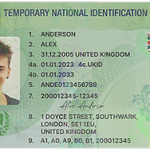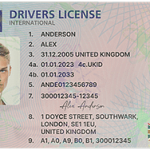Selling equipment for making fake ID cards presents a complex and morally – charged ethical dilemma. The act of providing tools that can be used to create fraudulent identification has far – reaching consequences that touch on multiple aspects of society, individual rights, and moral principles.
The Nature of Fake ID Card Equipment
Fake ID card equipment typically includes items such as high – quality printers capable of producing realistic – looking cards, laminators to give the cards a professional finish, and software or templates for designing the false identification. These tools, when in the wrong hands, can be used to create IDs that can be used for illegal activities such as underage drinking, identity theft, and even more serious criminal enterprises.
The Ethical Considerations
One of the primary ethical concerns is the violation of the principle of justice. By selling equipment for making fake ID cards, the seller is enabling individuals to bypass legal and regulatory systems. For example, underage individuals using fake IDs to purchase alcohol or enter clubs are violating laws designed to protect public health and safety. This not only undermines the rule of law but also creates an unfair advantage for those who use fake IDs over those who abide by the law.
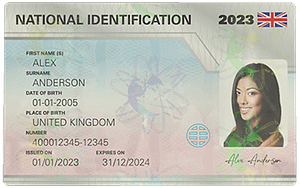
Another ethical issue is related to the harm caused to society. Identity theft is a growing problem, and fake ID card equipment can be a tool in the hands of identity thieves. Victims of identity theft can suffer financial losses, damage to their credit scores, and a great deal of emotional distress. The seller of such equipment, in a sense, is an accessory to these potential harms, as their products are facilitating illegal and unethical behavior.
From a moral perspective, the seller also has a responsibility to consider the potential impact on the well – being of others. The use of fake IDs can lead to situations where individuals are put in dangerous situations, such as underage individuals being in environments with excessive alcohol or drug use. The seller’s actions, by providing the means to create fake IDs, may contribute to these dangerous scenarios.
The Seller’s Perspective
Some sellers may argue that they are simply providing a product, and it is up to the buyer to use it legally. They may claim that the equipment they sell can also have legitimate uses, such as for creating novelty items or for use in certain industries with proper authorization. However, this argument fails to consider the high likelihood that the equipment will be misused for illegal purposes. In the case of fake ID card equipment, the potential for illegal use is so great that it cannot be ignored.
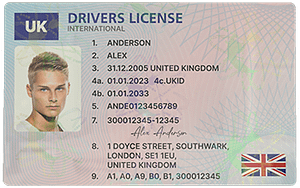
There may also be economic incentives for sellers. The market for fake ID card equipment can be lucrative, as there is a demand for these tools, especially among those who wish to engage in illegal activities. However, economic gain should not overshadow ethical considerations. The pursuit of profit at the expense of the well – being of others and the integrity of society is not a morally justifiable position.
Legal Implications
Selling equipment for making fake ID cards is illegal in most jurisdictions. Laws are in place to prevent the proliferation of fraudulent identification, as it poses a significant threat to national security, public safety, and the integrity of various systems. Those caught selling such equipment can face severe penalties, including fines and imprisonment.
Law enforcement agencies are constantly on the lookout for sellers of fake ID card equipment. They use various methods, such as online surveillance and undercover operations, to identify and prosecute those involved in this illegal trade. The legal framework serves as a deterrent to potential sellers, but the underground nature of the market still makes it a challenge to completely eradicate the problem.
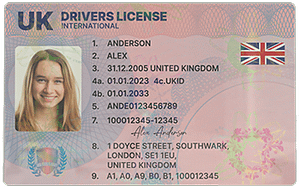
Solutions and Mitigation Strategies
One solution is to increase public awareness about the dangers and ethical implications of selling and using fake ID card equipment. Educational campaigns can be launched to inform the public, especially potential sellers, about the legal and moral consequences of their actions. This can help to create a social stigma around the sale and use of such equipment.
Law enforcement agencies need to continue to enhance their efforts in combating the sale of fake ID card equipment. This includes improving intelligence – gathering capabilities, collaborating with international partners to disrupt cross – border operations, and providing more resources for investigations and prosecutions.
Manufacturers and distributors of printing and laminating equipment can also play a role. They can implement strict sales verification procedures to ensure that their products are not being sold to individuals or entities with the intention of using them for illegal purposes. For example, they can require proof of legitimate business use or proper authorization before selling certain high – end equipment.
Common Problems and Solutions
1. Difficulty in Detecting Sellers
Problem: Many sellers operate in the underground market, often using anonymous online platforms to sell fake ID card equipment. This makes it difficult for law enforcement to identify and apprehend them.
Solution: Law enforcement should invest in advanced digital forensics tools and techniques. They can also collaborate with internet service providers and social media platforms to monitor and identify suspicious online activity related to the sale of such equipment. Additionally, creating tip – off programs where the public can report suspected sellers can help in gathering information.
2. Lack of Awareness Among Potential Sellers
Problem: Some individuals may not be fully aware of the legal and ethical implications of selling fake ID card equipment. They may view it as a simple business opportunity without considering the potential harm.
Solution: Educational initiatives should target potential sellers, such as small – scale electronics dealers and online merchants. These initiatives can include workshops, online courses, and public service announcements that clearly explain the illegal nature of selling such equipment and the potential consequences, both for themselves and for society.
3. Evasion of Sales Verification by Sellers
Problem: Sellers may find ways to bypass the sales verification procedures implemented by manufacturers and distributors. They may provide false documentation or use third – party entities to purchase the equipment on their behalf.
Solution: Manufacturers and distributors should continuously improve their verification processes. This can include conducting more in – depth background checks on buyers, using biometric authentication methods where possible, and cross – referencing buyer information with relevant databases. Additionally, they should have strict penalties in place for buyers who are found to have provided false information.
4. International Nature of the Problem
Problem: The sale of fake ID card equipment often has an international dimension, with sellers operating from different countries. This creates challenges in terms of jurisdiction, cooperation between law enforcement agencies, and the application of laws.
Solution: There should be enhanced international cooperation in the form of mutual legal assistance treaties and information – sharing agreements. International law enforcement agencies should work together to share intelligence, conduct joint operations, and harmonize their legal frameworks to better combat the cross – border sale of fake ID card equipment.
5. Use of Fake IDs in Remote Areas
Problem: In some remote or hard – to – reach areas, the use of fake IDs may go undetected for longer periods, and the sale of equipment may also be more difficult to monitor. This can lead to a proliferation of fake IDs in these areas, which can then be used for illegal activities such as smuggling or illegal immigration.
Solution: Local law enforcement in these areas should be provided with more resources and training to detect and prevent the use and sale of fake IDs. Community – based initiatives can also be launched to raise awareness among residents about the dangers of fake IDs and encourage them to report any suspicious activities. Additionally, mobile forensic units can be deployed to these areas for regular checks and investigations.


